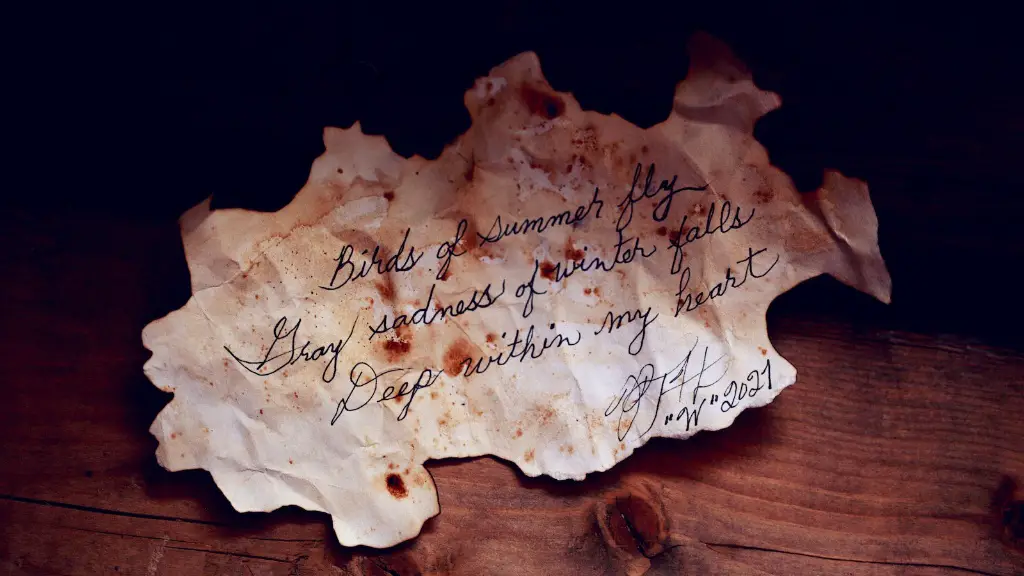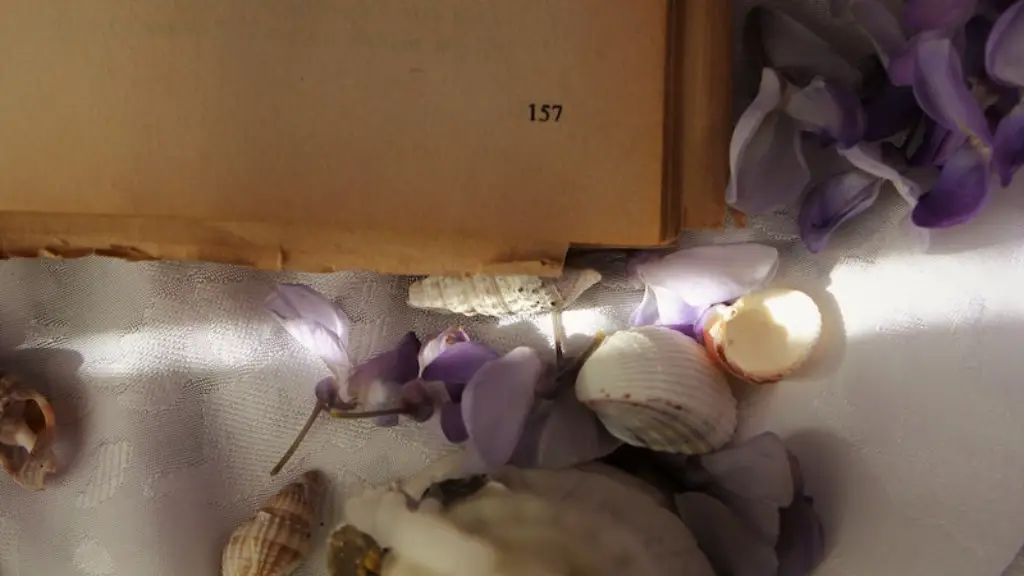Organizing a Poetry Night
Poetry reading events are a fantastic way to share creative pieces and gather in appreciation of the spoken and written word. Whether you’re running a poetry night at a local establishment or hosting one in your own home, getting organized should be the first step. But how do you go about planning your own special event?
The key to a great poetry night is deciding the type of event you want to host. Do you want a theme running throughout the night, or do you want to allow different poets to present their own individual works? You may also want to allot certain timeframes or styles of poetry. It’s up to you to decide what type of night you’re going to host.
The standard format for a poetry event involves a host introducing each poet as they come up to share their work, then concluding the night with a feature presentation or some other type of performance, such as music or comedy. For featured poets you may want to book them in advance, or you might wait to see who turns up on the night. If possible, providing a microphone should also be considered.
You’ll also need to choose a venue – it’s important to make sure that you pick a place that’s suited to the event and will be both comfortable and inviting. You’ll also want to consider a place that has enough room for poets to leave their belongings, read their works, and enough seating for the audience. Finally, it’s worth exploring the cost of renting a space – if you’re doing this on a budget, it may be a good idea to host the night in your own home.
Planning the individual aspects of the event is an important consideration. You may want to create paper programs for the night, such as a line-up of poets and a list of featured performers, and assign each poet a certain amount of time for reading. If you’re going to have more than one feature performer, make sure to allot them plenty of time – as much as you can as this is one of the main draws for people to come to the event.
You may also wish to have some type of open mic feature, allowing people to just turn up on the night and present their work – this is the most popular format for new and emerging poets, as it allows for a wider variety of performers. If it’s more suited to the event, you could leave this open until the end of the night. It’s important to not only pick the right venue, but also the right timeslot – having a special event on a weekday, or on the weekend at night, can make it difficult to get people to come.
In terms of promotion, it’s a good idea to have a clear and appealing logo for the night and make sure it’s visible across different platforms. Using websites and social media to advertise for the event is recommended – word of mouth can be a great tool for marketing, too. You may also want to consider setting up a ticketing system if you’re hosting the night in a bar or restaurant.
Choosing Poets
Another important factor to consider is who you want to invite to perform. Do you want to book professional poets in advance or rely on a mix of regular performers and surprise guests? It’s a good idea to book a minimum of three to five poets, but leave some slots open too, in case someone special turns up on the night. Ask around in your local area or tap into an established network of poets for potential performers.
Having ‘regular’ performers is also important. This includes poets who always attend the event and have a loyal following, as this creates a sense of familiarity with the audience and provides some structure to the night. Additionally, inviting local poets is a great way to build a strong community and create a strong identity for the night. Don’t be afraid to reach out to established poets and ask them to be involved.
It’s worth spending some time to get to know each of the poets you’re inviting. Get to know their individual styles, the type of subjects they address, the tone they take, the forms they use and what they consider to be their most memorable works. Also get a sense of how much experience each poet has, so you can better cater to their needs and make sure that their performance is as successful as possible.
It’s also important to make sure that yourself, as the organizer, is ready for the night. Prepare beforehand – make sure you’ve printed out any programs or tickets, make introductions if necessary, and go over key details such as the order of performance and the time schedule. Additionally, have an emergency kit ready, in case there is any sort of equipment failure or other unexpected issue occurring on the night.
Writing is a very personal experience, and the last thing you want is for any of your guests to feel uncomfortable or unwelcome. Hosting a poetry night doesn’t have to be a stressful experience; if you have planned effectively, the night should run smoothly with few, if any, hiccups.
Marketing the Event
Marketing is an essential part of organizing a poetry night. You will want to begin marketing your event as early as possible – sending out press releases and notifying local newspapers, radio stations, TV stations, and other media outlets. Additionally, take advantage of free or low-cost online marketing opportunities – create an event page or invite on social media, build an email list and send out newsletter updates, or create an online video.
Don’t be afraid to be creative – create a website or use hashtag campaigns to spread the word about your event. You may even want to offer a discount or incentive for early ticket purchases. Additionally, having a selection of merchandise – prints, postcards, zines – can help to drive sales and add to the overall atmosphere on the night.
Most importantly, remain open to feedback and criticism. People love to have a say in the events they attend, so take the time to read reviews and collect feedback from your audience. Listen to what they have to say – it could help you in the future as you work to improve the experience for all of your guests.
Partnerships
Partnering with like-minded organizations is another great way to boost your event’s success. If you’re someone who has connections to local businesses or cultural institutions, consider reaching out to them and seeing if they’d be interested in sponsoring your event. Additionally, look out for funding opportunities, such as public, private, or corporate grants.
On the night itself, consider framing the event as an educational experience as well as an entertaining one. This can open up the door to potential partnerships with local institutions and organizations, as they may view your event as a valuable learning opportunity. Consider inviting representatives or professionals from these organizations to your event and let them have a voice in the programing of the night.
Finally, don’t forget to capture the event with photographs and videos, so you can show people what the night was like after the fact. This will allow people to experience the event and encourage them to attend the next one. You can also use these photographs, videos, and first-hand accounts on social media and through press coverage to spread awareness of your event, allowing you to reach a wider audience.
Ticketing and Pricing
When it comes to pricing and ticketing, it really depends on the type of crowd you’re expecting. If you’re looking for more established poets who may have agents and representation, you may want to pay for their performance in advance to ensure their appearance. Additionally, be sure to factor in an appropriate fee for any feature performers.
For aspiring poets, consider a structure such as charging a flat fee for the night with no presales. This gives an opportunity for poets to just show up on the night and enjoy the experience. If you’re aiming to attract a larger, more mainstream audience and potentially generate some revenue, consider charging individual tickets or requiring a cover charge.
No matter what type of event you’re hosting, it’s important to leave some tickets available at the door. Word-of-mouth and personal connections often play a major role when trying to reach the right audience, so don’t preclude those who are not able or willing to reserve a ticket in advance.
It’s also a good idea to provide an offering of refreshments and beverages on the night. This could be as simple as providing a few bottles of wine or a selection of snacks. Even if you don’t have the budget for full catering, this simple act will go a long way in making your guests feel welcomed.
Wrapping Practicalities
Before the night get’s underway you’ll need to finish off some practicalities. Firstly, make sure to check any relevant licenses or permits for the venue. Depending on the type of poetry night you’re running and the venue type, you may need to check with the local authorities to be sure you can proceed. Additionally, think about what will happen if the event needs to be rescheduled due to unforeseen circumstances.
It can be helpful to create a list of contact numbers – this should include your own, contact information for any of the poets attending, and any other relevant people such as a sound specialist or photographer. Make sure to go over this list with the poets attending and make sure everybody is on the same page and knows what’s expected.
Finally, record the evening. As previously mentioned, this will be a great resource when it comes to future art marketing efforts. Even if you don’t have the budget for a professional recording team, simply taking pictures and videos on the night will benefit your next event – as visuals of what happened will help draw people in.





